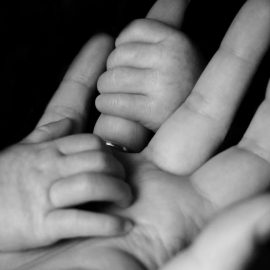

This article is an excerpt from the Shortform book guide to "The Road Less Traveled" by M. Scott Peck. Shortform has the world's best summaries and analyses of books you should be reading.
Like this article? Sign up for a free trial here .
If love is not a feeling, what is it? Is “falling in love” genuine?
In The Road Less Traveled, psychiatrist M. Scott Peck argues that love is not a feeling. We have feelings that we associate with love, but they are not love itself, and they might not even be based in reality. Peck asserts that real love is an act of will—a committed action that we take even when we’re not “feeling it.”
Keep reading to learn how love is not a feeling.
Love Is Not a Feeling
What seems to be love can often be some other motivating force or emotion (for simplicity, let’s call this force nonlove). This is because there is a misconception that “falling in love” is genuine love or a manifestation of it. In fact, falling in love is simply an experience we feel intensely. There is a feeling of “I love you,” but it’s not a feeling based in reality. In and of itself, love is not a feeling.
Why Isn’t “Falling in Love” Genuine Love?
One reason falling in love isn’t genuine love is that it’s linked to erotic feelings. We fall in love only when the underlying motivation is sexual in nature. Additionally, the feeling of falling in love is impermanent and chemical.
Why Is Falling Out of Love Inevitable?
The love that you might perceive as a feeling occurs when you find a person or object you are attracted to and committed to beyond your ego boundaries. This process is called cathexis. To “cathect” someone is to become invested in them in a way that pulls you outside of yourself. Paradoxically, when you stretch outside of yourself to invest in a person (or thing), you also incorporate them into yourself. This creates a bond. Once something has been cathected, you see it as an extension of yourself.
- Cathecting is not love because it can occur with any object, not just sentient beings.
- Cathecting doesn’t mean you care about the other person’s spiritual growth, which is a defining component of “true” love. In fact, a dynamic built on cathexis often causes one person to fear the growth of the other, because that would threaten the unstable security of the bond.
- You can decathect just as quickly as you cathect, and a person who has loving feelings shouldn’t always act on them. For example, if you’re in a relationship, and you meet someone you feel loving feelings towards, if you value your relationship, you should not act on those feelings.
- Furthermore, not being able to distinguish genuine love from nonlove is the basis for deception (of ourselves and others), because you may justify behavior that ultimately isn’t loving. For example, let’s say someone who is experiencing chemical love hits the object of that “love” out of jealousy. This is not a loving action. Because true love is not a feeling, it doesn’t bend to the whims of emotion.
The Truth: Love Is an Act of Will
If love is not a feeling, what is it? Love as action occurs when you do what is best for the higher growth of others, whether or not you feel a sensation of love for them (cathexis). You can be loving towards people for whom you have no loving feelings. The distinction is passivity versus action. “Desire” on its own is passive. “Will” is a form of desire, but unlike pure desire, it’s actionable. In other words, desire is, “I want to be good to you,” whereas will is, “I will be good to you.”
Genuine love requires committed action, and this requires discipline. We choose to commit because we understand that not committing will have a harmful effect on the growth of the relationship, but more importantly, the growth of the individuals in it.
For example, commitment is crucial in a therapy dynamic. A patient has to know the therapist is committed to being there throughout the therapeutic growth process. In this context, commitment is demonstrated by the therapists’ willingness to do their job whether they feel like it or not. In the context of a romantic relationship, commitment is demonstrated by each partner’s willingness to show up for the relationship even if they don’t feel like it. Because love is not a feeling, it doesn’t blow hot and cold.
When you truly love someone, you extend your limits to accommodate, receive, or support them, which expands your own growth. Furthermore, spiritual growth requires discipline, so if you don’t have the discipline to accommodate your own growth, you won’t be able to extend that discipline to nurturing the growth of others through love.

———End of Preview———
Like what you just read? Read the rest of the world's best book summary and analysis of M. Scott Peck's "The Road Less Traveled" at Shortform .
Here's what you'll find in our full The Road Less Traveled summary :
- The four key elements in the path to enlightenment
- The importance of spiritual competence in relation to mental health
- How you can face challenges and grow through hardship






